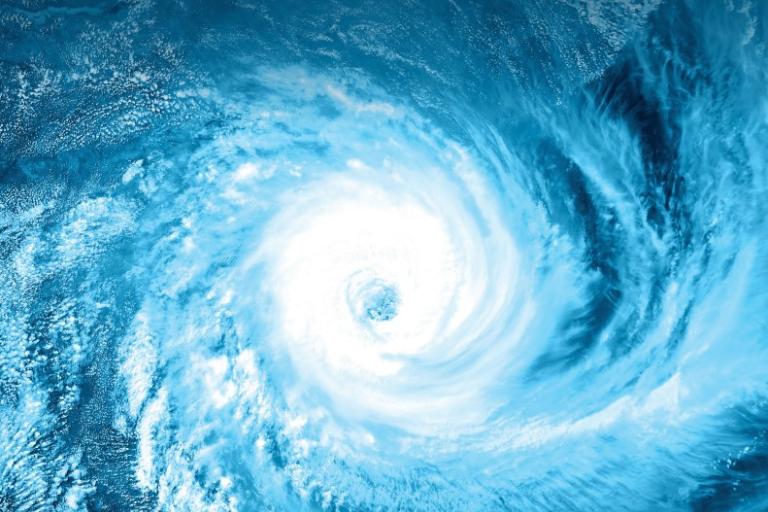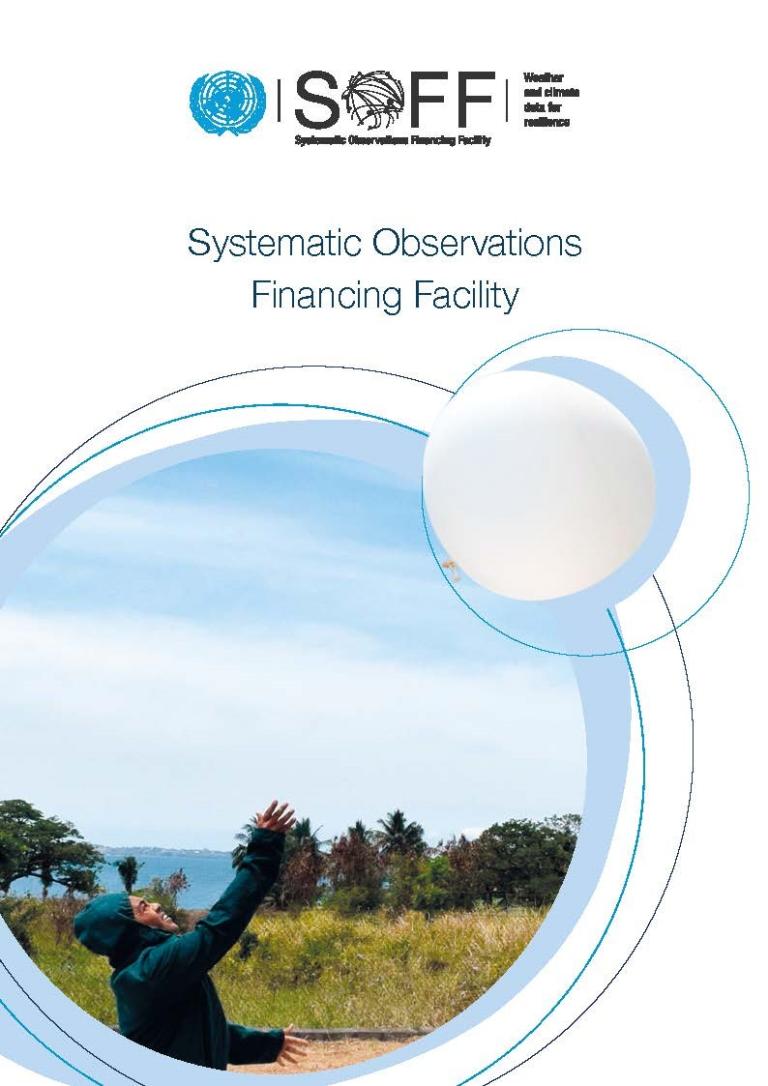New financing mechanism for climate action becomes operational

Helsinki, 30 June 2022. A new finance mechanism to strengthen weather and climate observations, improve early warnings to save lives, protect livelihoods and underpin climate adaptation for long-term resilience has opened its doors for business.
The Systematic Observations Financing Facility (SOFF) is a key building block for a new initiative spearheaded by United Nations Secretary-General General António Guterres to ensure that early warning services reach everyone in the next five years.
SOFF seeks to address the long-standing problem of missing weather and climate observations from Least Developed Countries and Small Island Developing States. In support of the Paris Agreement, it will strengthen the international response to climate change by filling the data gaps that limit our understanding of the climate. These gaps affect our capacity to predict and adapt to extreme weather events such as floods, droughts and heatwaves.
Heads of the three founding agencies, the World Meteorological Organization (WMO), the United Nations Development Programme (UNDP) and UN Environment Programme (UNEP), ministers from donor countries, representatives of the Least Developed Countries (LDCs) Group and the Alliance of Small Island States (AOSIS) and development partners met at the first SOFF Steering Committee meeting in Helsinki at the Finnish Meteorological Institute to open SOFF doors for business.
SOFF becomes operational thanks to the support from many partners and the initial financial contributions from Austria, Denmark, Finland, Iceland, Ireland, Norway, and the Nordic Development Fund. Support is expected to grow as additional countries that consider potential future funding attended the meeting. Ministers and senior officials from the initial funders emphasized the urgency of closing the huge weather and climate data gaps through SOFF (see statements below).
“As the climate crisis worsens, it is crucial that we boost the power of prediction for everyone so countries can reduce disaster risk. That is why we have launched an initiative to ensure that every person on Earth is protected by early warning systems within the next five years. The Systematic Observations Financing Facility (SOFF) is an essential tool to achieve this. I thank all the countries that are providing initial funding to the SOFF UN Multi-Partner Trust Fund and urge others to do the same,” said Mr Guterres.
“Early warning systems are built on the foundation of weather observation data, but this foundation is patchy to non-existent in many in LDCs and African countries,” stated Selwin Hart, Special Adviser to the Secretary-General on Climate Action and Just Transition “I want to congratulate all the countries that have come forward and announce or soon will announce their financial contributions to the SOFF UN Multi Partner Trust Fund. I urge others to follow suit and help create a strong global data foundation upon which timely, accurate, people centered early warning systems can be built for everyone. Our collective efforts are needed more than ever.”
“Today, less than 10% of required basic weather and climate observations are available from Small Island Developing States and Least Developed Countries,” said Prof. Petteri Taalas, WMO Secretary-General. “The world urgently needs this data and this is why SOFF will be a partnership of equals where everyone has a role and responsibilities.”

Significant socio-economic benefits
SOFF provides benefits not only to the most vulnerable countries, but to all countries across the globe. The improved availability of weather and climate observations enabled by the SOFF are essential if the world community is to realize the 162 billion US dollars annually in socio-economic benefits of weather and climate prediction.
Global Basic Observing Network
The objective of SOFF is to support Small Island Developing States (SIDS) and LDCs through the provision of grant financing and technical assistance for the sustained collection and international exchange of surface-based weather and climate observations according to the internationally agreed Global Basic Observing Network (GBON) and to help other developing countries in assessing how to meet the GBON requirements.
A United Nations Multi-Partner Trust Fund
WMO, UNDP and UNEP legally established SOFF last year at COP26 as a UN Multi-Partner Trust Fund. The first Steering Committee adopted the governance structure and programming criteria, as well as a preliminary work programme on how SOFF proposes to deliver support to beneficiary countries in terms of targets and planned allocation of resources for the first implementation period from July 2022 to June 2025.
Inger Andersen, UNEP Executive Director, emphasized that “Now is the time to begin business by providing financial resources and technical capacity, by ensuring that from local to the global, all our actions can be informed by the best science and the best data. My deep thanks to the generous funders who will announce their firm pledges today. I encourage all to follow suit because now is the time to roll up our sleeves and get to work for people and for planet.”
UN Under-Secretary General and UNDP Associate Administrator Usha Rao-Monari followed, adding that “The United Nations Development Program is a proud co-founder of the SOFF UN Multi-Partner Trust Fund. Together with WMO and UNEP we are building upon the momentum generated over the past two years and I want to sincerely thank all stakeholders that contributed to the development of the SOFF. The specialized support provided by SOF is needed more than ever.”
Statements from the initial SOFF funders
“The Nordic Development Fund (NDF) is pleased to be among the initial funders of SOFF. The implementation of this new financing mechanism will ensure that climate action is underpinned by the best available science and data,” says Karin Isaksson, Managing Director Nordic Development Fund.
”Climate change is a reality for millions of people today. We must support the poorest and most vulnerable countries and work to better avert and minimize natural disasters and returning challenges such as drought or flooding. Securing high quality weather data is central for lifesaving climate adaptation, including early warning systems. This makes SOFF a key partner. So I am very pleased to reiterate the firm Danish pledge of support to the SOFF, as a founding member,” says Flemming Møller Mortensen, Minister of Development Cooperation, Denmark.
“There is an increasing need for effective weather and climate services and early warning systems, especially in the least developed countries and small island developing states. Therefore, I am delighted to note the purpose of SOFF –to close the weather and climate data gaps that negatively affect the quality of weather forecasts and climate prediction. SOFF investments are also an essential foundation to the UN Secretary General António Guterres’ appeal to ensure that every person on Earth is protected by early warning systems within five years.” Ville Skinnari, Minister of Development Cooperation and Foreign Trade, Finland
“Norway will double its climate finance by 2026 and triple support for adaptation. Early warning systems and climate services are one of our priorities. Weather observations and reliable weather data from all parts of the world are crucial for weather forecasts and climate services and therefore for disaster risk reduction.” Anne Beathe Tvinnereim, Minister of International Development, Norway
“SOFF addresses and urgent need for science-based early warning and adaptation. It has the potential to be a game changer when it comes to increasing resilience in developing countries most affected by climate change. Increasing the global coverage of reliable weather and climate observations benefits all of us, not only vulnerable LDCs and SIDS. It is therefore a pleasure to be among the first group of donors and to be a part of this important advance in weather and climate science.” Thórdís Kolbrún Reykfjörd Gylfadóttir, Minister for Foreign Affairs, Iceland
“Providing better early warning systems in advance of dangerous weather events is crucial for building communities resilience. Filling the data gaps on weather and climate systems will help communities protect themselves. This facility is specifically designed to meet the needs of the least developed countries and the Small Island Developing States already deeply affected by climate change.” Colm Brophy TD, Minister of State for Overseas Development and Diaspora of Ireland
“Filling the gaps in the global observation system will significantly improve the quality of much needed weather and climate forecasts on a global scale. This will improve warnings and climate predications. We all will benefit from it. Development and adaptation to climate change will be supported locally, regionally, and globally.” Habertheuer Heinz, Deputy Managing Director of Austrian Development Agency
For further information please contact Markus Repnik, Director, SOFF Secretariat at mrepnik wmo [dot] int (mrepnik[at]wmo[dot]int). Tel +41-79 790 1882
wmo [dot] int (mrepnik[at]wmo[dot]int). Tel +41-79 790 1882
The World Meteorological Organization is the United Nations System’s authoritative voice on Weather, Climate and Water.
For further information, please contact:
- Markus Repnik Director SOFF Secretariat mrepnik@wmo.int

